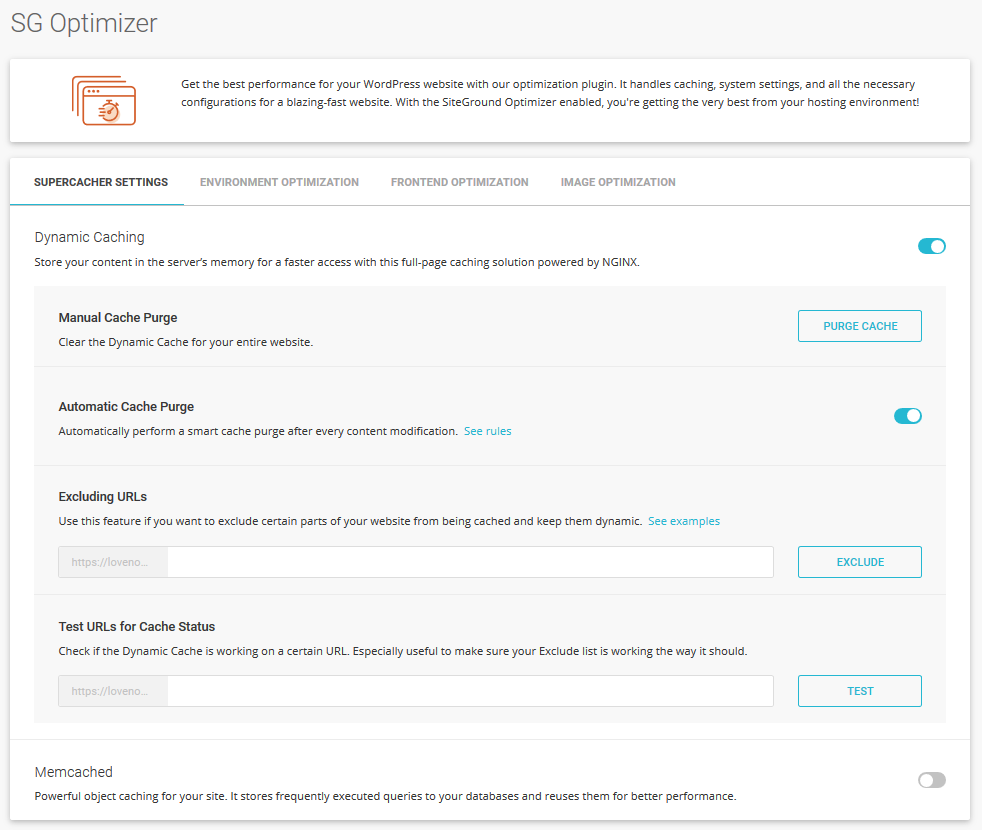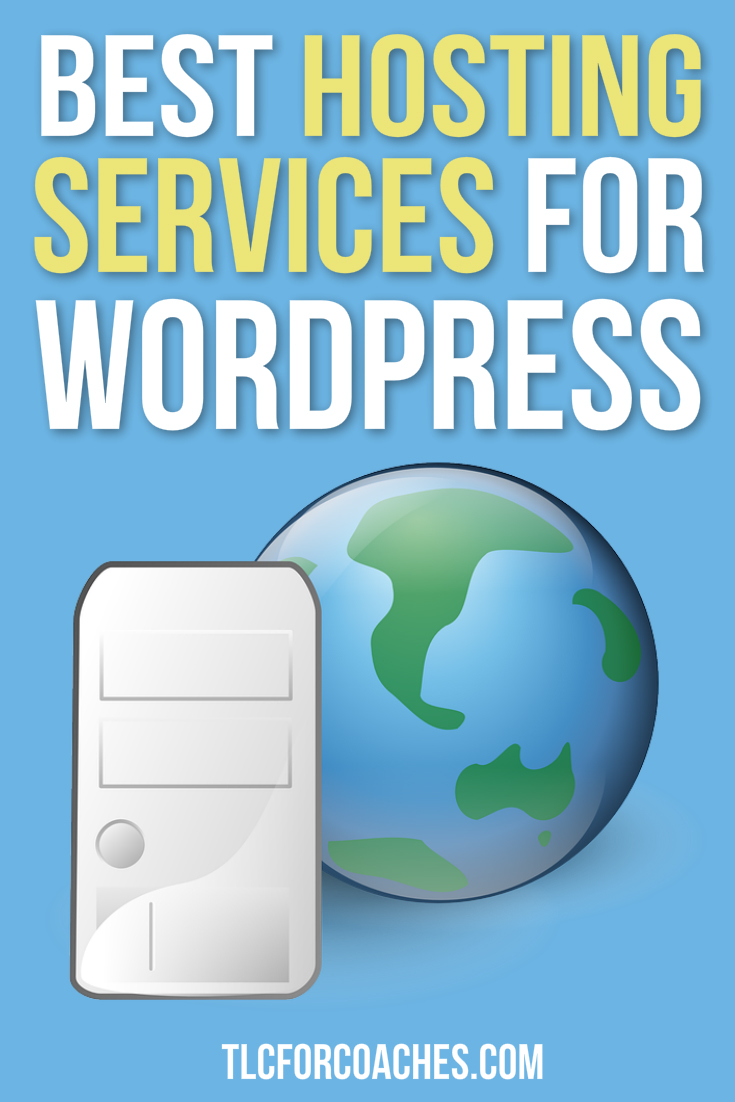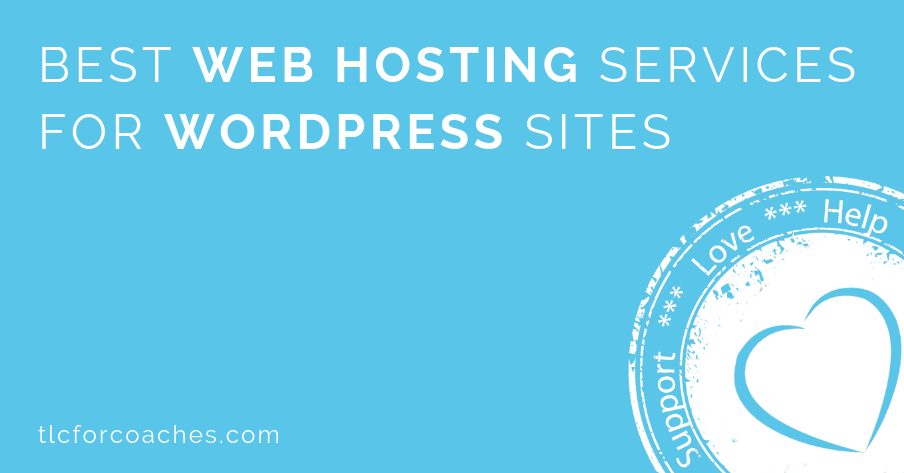 “What hosting service do you recommend?” What is Shared Hosting? Do I need WordPress Hosting? What is Cloud Hosting? These are questions we get asked on a regular basis.
“What hosting service do you recommend?” What is Shared Hosting? Do I need WordPress Hosting? What is Cloud Hosting? These are questions we get asked on a regular basis.
We’ve worked with a lot of different hosts over the years. In doing so, we’ve kind of created an internal list of the ones that stand out and that we keep going back to for a variety of reasons. We have another list, too – the ones we avoid like the plague. But that’s another post for another day. Nonetheless, here is a list of our favorite hosting services that we’ve personally worked with, both for ourselves and for our clients. We could go into detail for each one, but opted to keep it short and simple with highlights and personal observations for each one.
In 2017, we switched our main hosting (this website) to WP Engine. Our 2016 re-launch required more hosting power to support our expanded services, a membership platform, apps and other cool things in development. SiteGround worked well for us the last couple years, but we ran into some limitations that WP Engine solved for us. Granted these limitations are advanced programming that probably 90% of people will probably never experience, but that’s the main reason we made the switch.
WP Engine
 If you have a large site, or a network of sites, and have a bigger budget to work with, WP Engine is a solid premium host. Some would argue that they are the best when it comes to WordPress Hosting. They offer automated backups, staging, and built in CDN functions – just to name a few. One drawback (or positive – depending on who you ask) is that all they do is hosting. That means no email services on their servers. If you need emails@yourdomain.com, you’re going to need to route those through a 3rd party mail provider like Google Apps or GoDaddy. They have a great support system that is pretty quick. Every time we’ve called or chatted with them, they’re always very friendly and helpful. They use their own proprietary system for administering your site, but it’s pretty easy to make your way around it. A couple of our bigger clients use WP Engine to host their network of sites. Overall WP Engine is great with large sites and any site that has outgrown other hosting solutions. They are constantly improving their infrastructure: WP Engine secures $250M investment and announces revenue milestone.. In June 2019, they acquired Flywheel, another one of the popular WordPress hosting platforms.
If you have a large site, or a network of sites, and have a bigger budget to work with, WP Engine is a solid premium host. Some would argue that they are the best when it comes to WordPress Hosting. They offer automated backups, staging, and built in CDN functions – just to name a few. One drawback (or positive – depending on who you ask) is that all they do is hosting. That means no email services on their servers. If you need emails@yourdomain.com, you’re going to need to route those through a 3rd party mail provider like Google Apps or GoDaddy. They have a great support system that is pretty quick. Every time we’ve called or chatted with them, they’re always very friendly and helpful. They use their own proprietary system for administering your site, but it’s pretty easy to make your way around it. A couple of our bigger clients use WP Engine to host their network of sites. Overall WP Engine is great with large sites and any site that has outgrown other hosting solutions. They are constantly improving their infrastructure: WP Engine secures $250M investment and announces revenue milestone.. In June 2019, they acquired Flywheel, another one of the popular WordPress hosting platforms.
SiteGround
 While we switched our main site away from SiteGround last year, we still currently use them for many of our developmental sites and all our email. We have a “Managed Dedicated Server” with them, which is essentially a dedicated server that they “manage” (keep updated) for us. Managed is the way to go as it frees up our time to focus on developing our sites and servicing clients, instead of manually keeping up with the latest security patches, monitoring and managing performance, etc etc etc. Been there, done that. The support at SiteGround is unreal as they promise (and actually deliver) 10 minute response times on tickets, and almost instant service on chat and by phone – no matter what time of the day or night it is. They have physical locations (and support staff) in multiple countries and time zones, which is how they can do the “instant” support so well. We’ve contacted support quite a few times and they are fast, friendly and helpful – which is always good to see. We’ve worked with hosts that don’t get back to you for days. SiteGround offers a variety of services at different price points, and uses a modified version of cPanel / WHM for administering your site on the backend, setting up emails, running backups, et al. On new accounts, they’ll either give you a free domain, or transfer your existing site for free. It’s hard to beat what they offer, but there are other good options.
While we switched our main site away from SiteGround last year, we still currently use them for many of our developmental sites and all our email. We have a “Managed Dedicated Server” with them, which is essentially a dedicated server that they “manage” (keep updated) for us. Managed is the way to go as it frees up our time to focus on developing our sites and servicing clients, instead of manually keeping up with the latest security patches, monitoring and managing performance, etc etc etc. Been there, done that. The support at SiteGround is unreal as they promise (and actually deliver) 10 minute response times on tickets, and almost instant service on chat and by phone – no matter what time of the day or night it is. They have physical locations (and support staff) in multiple countries and time zones, which is how they can do the “instant” support so well. We’ve contacted support quite a few times and they are fast, friendly and helpful – which is always good to see. We’ve worked with hosts that don’t get back to you for days. SiteGround offers a variety of services at different price points, and uses a modified version of cPanel / WHM for administering your site on the backend, setting up emails, running backups, et al. On new accounts, they’ll either give you a free domain, or transfer your existing site for free. It’s hard to beat what they offer, but there are other good options.
Something else we love about Siteground is the constant improvements to their network and freebies they throw in. They have a fantastic free plugin called SG Optimizer, which basically eliminates the need for about 4 other plugins that help you auto-optimize images, caching, site speed and more.

BlueHost
Bl ueHost have been around for quite a while and they offer good, reliable service in our experience. You can get a variety of hosting packages, including Shared, Optimized WordPress and Cloud Hosting. They use a modified version of cPanel, which makes it easy to administer your site, setup emails, run backups, run security scans, and more. If you need more power, they offer dedicated servers as well. We’ve got quite a few clients on BlueHost and, while not as quick as other hosts, their support has always been very good and helpful. Overall Bluehost is a solid choice with good pricing.
ueHost have been around for quite a while and they offer good, reliable service in our experience. You can get a variety of hosting packages, including Shared, Optimized WordPress and Cloud Hosting. They use a modified version of cPanel, which makes it easy to administer your site, setup emails, run backups, run security scans, and more. If you need more power, they offer dedicated servers as well. We’ve got quite a few clients on BlueHost and, while not as quick as other hosts, their support has always been very good and helpful. Overall Bluehost is a solid choice with good pricing.
Hostgator
 Hostgator has also been around for years, is reliable, and offers a variety of shared, WordPress and cloud-based hosting services with standard administrator tools like cPanel on the backside. The only time we’ve had an issue with them is when they took down one of our clients’ sites for high resource usage. This client was in the middle of a live event, and people from around the world were live-streaming and live chatting on the site. Some would consider that a disaster, but a quick call to them solved the issue in minutes, and they gave us helpful advice to prevent the issue in the future. Until our re-launch, we used Hostgator in one form or another since the start of our company back in 2007.
Hostgator has also been around for years, is reliable, and offers a variety of shared, WordPress and cloud-based hosting services with standard administrator tools like cPanel on the backside. The only time we’ve had an issue with them is when they took down one of our clients’ sites for high resource usage. This client was in the middle of a live event, and people from around the world were live-streaming and live chatting on the site. Some would consider that a disaster, but a quick call to them solved the issue in minutes, and they gave us helpful advice to prevent the issue in the future. Until our re-launch, we used Hostgator in one form or another since the start of our company back in 2007.
So that’s our current list of favorite hosting companies. Again, these are hosts that we personally have experience with – both for our clients and ourselves. This list isn’t meant to be inclusive of every single host out there.
Good hosting is the first step to a successful site.
You usually don’t need the most expensive package that these hosts offer (especially if you’re just starting out or have a small site), but you should always try to purchase what you’ll actually need – based on what you’re trying to do. Putting a large interactive eCommerce or membership site on the cheapest hosting plan you can get is simply asking for all sorts of trouble, in our humble opinion. You also want to make sure your hosting can grow with you and be able to easily upgrade your back end to support any interactive services you add and/or traffic spikes.
 Confused? Need to narrow down your options?
Confused? Need to narrow down your options?
Here’s a quick flowchart that we use – based on the typical needs of our clients, this list of hosts, and our experiences with these hosts:
- Small sites/one-pagers (typically around $5-$10/month) and we’d recommend SiteGround or BlueHost, or Hostgator on the Basic / Shared Hosting plans.
- Medium to large sites with multiple pages, plugins, interactive forms, etc (typically $15-30/month) and we’d recommend Siteground on the WordPress Optimized/Cloud/Business/Pro Plans.
- Large sites with lots of functionality, plugins, membership platform and/or eCommerce installed, et al ($25-$100/month) and we’d recommend WP Engine or SiteGround or Hostgator (WordPress Plan) or BlueHost (WordPress or Cloud Plan).
- High performance sites/networks with plugins, eCommerce, membership platform, lots of traffic / bandwidth consumption, etc ($100-$300/month):
WP Engine or SiteGround on a VPS (Virtual Private Server) or Dedicated Server.
Again, this flowchart isn’t all inclusive, just some pointers and general ideas that we tend to use. If you’re in the market for a good host, hopefully this info helps narrow down your search!

Want more?
Get instant access to our free online library and toolbox full of helpful time-saving ebooks, printable checklists, royalty-free graphics, training videos, templates, shareable social media images, and much more! We’re pretty confident you’ll find something useful in there that will help you build your business online!

Already a member? Awesome! Login >>

